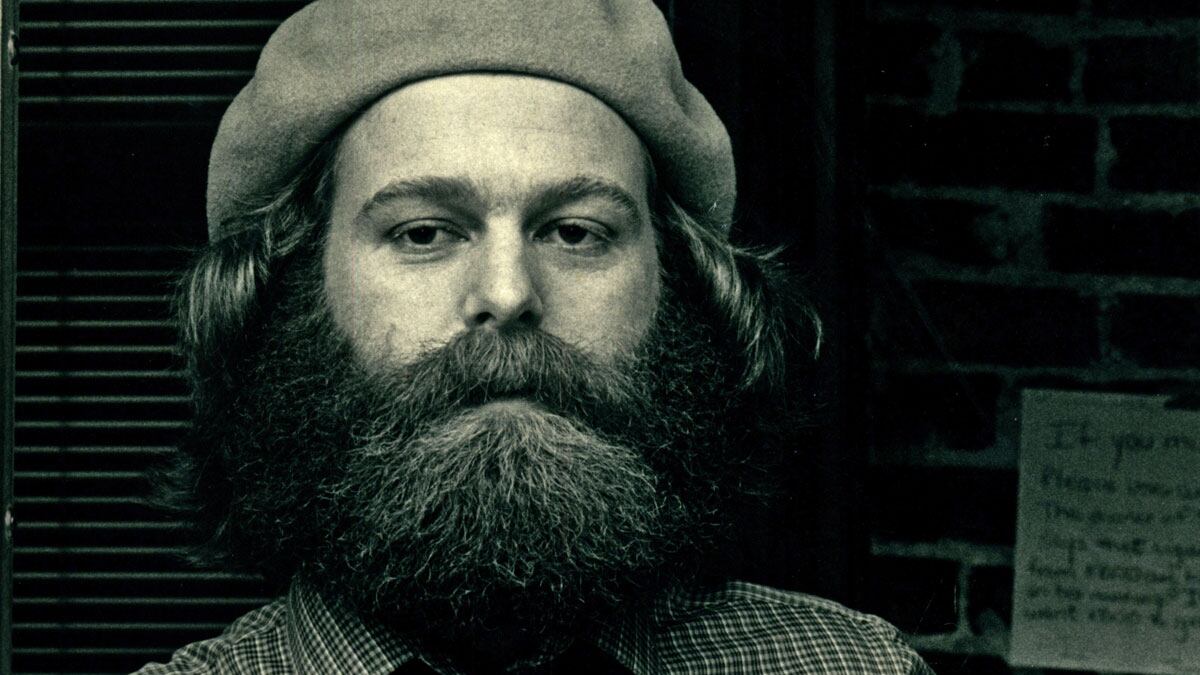Old Portland might be dying in the streets, but it's alive and well on the airwaves.
In 1968, KBOO, Portland's original community radio station, went on the air, injecting a sense of free-form radicalism into a whitewashed radio landscape. Operating originally out of a hole-in-the-wall studio on Southeast Belmont Street, the station molded itself in Portland's image, with an emphasis on local left-wing politics and genre-agnostic music programming that ran from hardcore blues to freaked-out jazz to whatever other bizarre notions the DJs wanted to indulge at any given moment.
A half-century later, you can still find KBOO at 90.7 FM, and its commitment to the community hasn't wavered. With a 50th anniversary exhibit opening this week at the Oregon Historical Society, we spoke to former WW music critic Rick Mitchell—a KBOO programmer in the '70s and '80s, who returned last year as a DJ—about the station's early days.
Willamette Week: How did you first get involved with KBOO?
Rick Mitchell: Actually, I first was on the air with KBOO in 1972. I came up here that summer to visit a friend, I was 19 years old and I'd been doing college radio for a year and a half or so. I walked through the door at KBOO, and Bill Reinhardt, the program director, said, "We are desperate. Someone didn't show up. We need you to do this avant-garde electronic music show"—which I knew nothing about at the time. I was pretty musically astute for a 19-year-old, but avant-garde electronic music? Then when I finished college and moved back up here to stay, I started doing my own program.
How radical was the idea of KBOO at the time?
The idea for KBOO really dates back to the Pacifica Radio Network, which was founded after World War II as a noncommercial, community grassroots radio station by a guy named Lewis Hill. When I was in high school, I discovered the Pacifica Radio Station in LA, where you could hear live comedy, radical politics, folk music and jazz. So I was kind of familiar with the concept. It's different from NPR stations. They're somewhat similar—they do pledge drives and ask listeners to call in and support—but KBOO is not a government run radio station. It's directly a reflection of the community.

How was KBOO received by the city early on?
It was pretty well embraced by the counterculture. There was a split that went on when I was on staff, between the board and the staff. The board consisted of successful liberals—lawyers and businesspeople. Whereas the staff were truly radicals. We were anarchists and socialists. An organization that's trying to go against grain needs both. You need successful liberals to keep the money coming in and radicals to keep the content truly alternative.
Who were the major on-air personalities?
The guy who came on before me was named J.W. Friday, who was at the time the only person in town doing popular black music. That's where the first hip-hop in Portland was heard. Saturday's anchor was a guy named George Page. He did a jazz show. His nickname was the Master Blaster—literally, if you went up into Northeast Portland, you could hear George blasting from open car windows. Then he'd sometimes shift over into the blues, and he'd just be shouting on the air, singing along to the tunes.

Just how out-there did the programming get?
Well, Bill Reinhardt told me that one night, they did live sex on the air. There was a guy named Michael Horowitz, and he'd try to do things that had never been done on radio before. So they got two volunteers, a guy and a girl, and they came in and had sex on the air. When Bill told me that story, I said, "I hope it wasn't during a pledge drive, or we could've gotten accused of prostitution."
What was the reaction from city authorities to stuff like that?
I'm sure they didn't know about it. I doubt Vera Katz was listening to KBOO at 2 in the morning. But we used to broadcast the city council meetings live in the afternoon. Sometimes we'd have a little fun with it, like there'd be crickets chirping or frogs croaking in the background while the city council meetings are going on. And sometimes, when they'd take a break, we'd put on the most avant garde stuff, like Anthony Braxton or Albert Ayler, totally out-there jazz.
With stations like XRAY popping up in Portland, how has that changed the station's mission?
It's not simply that there's more stations, there's also Sirius FM and Spotify. If anything, it's made it more important than ever for KBOO to maintain that community focus. You can listen to jazz on Sirius FM and they play a lot of good stuff. You can listen to blues on Sirius, you can listen to alternative country. There's a whole radio station on the Beatles. But you don't have that connection directly with the community. You don't have people curating a show with that same Portland consciousness.
SEE IT: 50 Years of KBOO opens at the Oregon Historical Society, 1200 SW Park Ave., on Friday, Jan. 19. Go here for more information.
